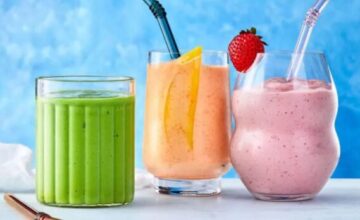
Protein plays an important role in repairing our body’s tissues and facilitates the healthy functioning of our body.
It is an essential building block of bones, muscles, cartilage, skin, and blood and also aids in keeping our energy levels high. However, too much or excess of anything can be harmful.
A high-protein diet may have its benefits, however, if you’re looking to lose weight, too much protein can affect your weight loss process.
That said, here are some ways a high-protein diet may be making you gain weight.
1. Your high-protein diet may be linked to too many calories
Irrespective of what you eat or drink, you’re looking forward to some amount of calories, which is why if you’re aiming to shed kilos, you must maintain control and have everything in moderation. A high-protein diet however may go against that rule, especially if you’re feasting on animal-based protein. Consuming more calories than what you actually burn in a day will undoubtedly increase the number on your weighing scales and there are no two ways about it.
2. You’re consuming a lot of meat
Animal-based protein primarily means meat, fish, and poultry, which are extremely high in calories. If your goal is to feel full and satiated, then surely these high-protein foods will do the job. But if you’re also working towards losing weight, then you might have to reconsider your food choices or your eating habits.
There are healthy plant-based alternatives that are rich sources of protein including lentils, chickpeas, quinoa, tofu, edamame and nuts. What’s great about them is that these are low in calories as well and therefore, can aid your weight on your journey beautifully.
3. Are you having enough carbs?
While a high-protein diet is fulfilling and satiating, it does not mean you cut down your carb and fat consumption. Every nutrient has a role to play and cutting down one and having excess of another may not do any justice to your body. Limiting your carb intake can affect your mood greatly and may also increase your food cravings. This can lead to unhealthy binge-eating, which is one of the primary reasons why people tend to gain weight. A healthy balanced diet is what people looking to lose weight should aim for.
4. Fibre may not be the strongest element in your plate
If you have cut down on carbs, have incorporated more of animal-based protein, then it is likely that you don’t have a lot of fibrous elements in your plate, which can not only hamper with your digestive health but also with your weight loss process. Fibre-rich foods help in keeping unhealthy binging at bay, which in turn aids in weight loss. That said, it is important that you have a healthy plate of food consisting of protein, carbs and fibre.
5. You’re probably exercising less
Just because you feel like you’re on a healthy diet, doesn’t mean you toss your workout routine out of the window. Your weight loss goals are dependent on both your diet and workout regime. Irrespective of how many calories you’re consuming, you must exercise regularly. Similarly, if you’re exercising every day, it doesn’t mean you start devouring anything and everything. You must strike a balance!
So how much protein should you have in a day?
According to the Mayo Clinic, anywhere from 10% to 35% of your calories should come from protein. So if your body requires 2,000 calories, then you must aim for 200–700 calories from protein, or 50–175 grams, explains the health body. 0.8 grams of protein per kilo of one’s body weight is the recommended dietary allowance to prevent deficiency in any average physically inactive adult.




